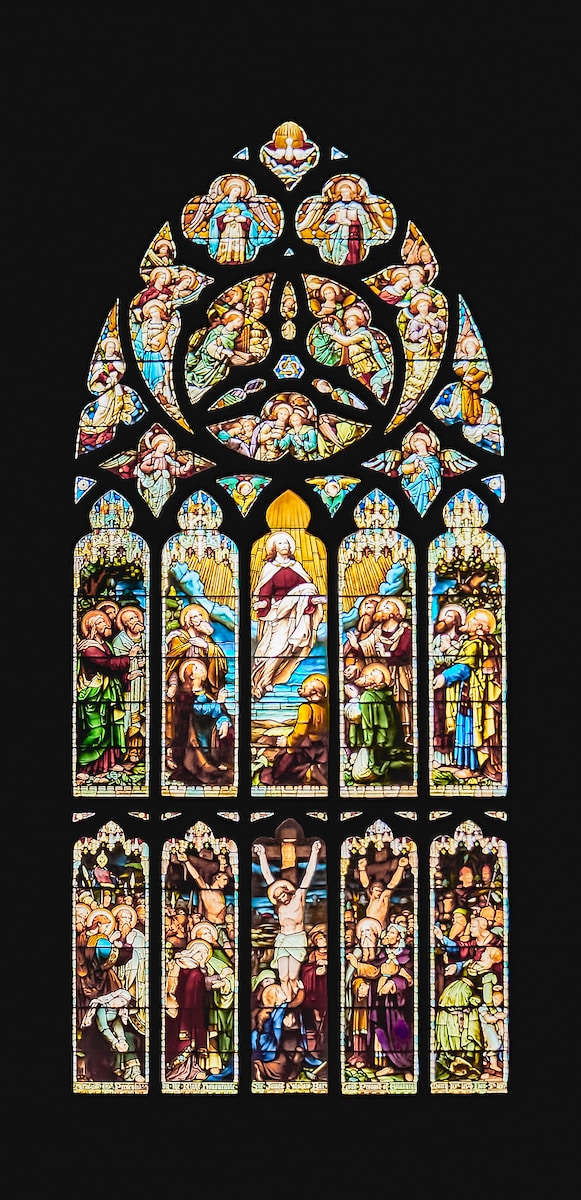Introduction
The book of Isaiah is a remarkable collection of prophecies and oracles that were written over several centuries.It serves as a revelation of God’s plan for redemption and restoration. Within the context of this extraordinary book, Isaiah Chapter 23 holds significant significance. It sheds light on prophecy, trade, and the Messianic promise, providing profound insights into the divine plan and the role of Jesus.
Isaiah Chapter 23 focuses on the city of Tyre, renowned for its wealth and thriving trade. This chapter foretells the desolation of Tyre by Nebuchadnezzar and its eventual restoration after seventy years. Tyre’s prominence in trade and commerce with nations from all corners of the world is highlighted, as well as the city’s pride and reliance on its own strength, which ultimately leads to its downfall and the captivity of its inhabitants. The chapter also addresses God’s judgment and the Chaldeans as instruments of destruction, as well as the subsequent restoration of Tyre and the dedication of its merchandise and trade to God.
Tyre’s downfall was a result of its materialistic and prideful nature. The city was known for its vast wealth and commercial success, which led its inhabitants to become arrogant and self-sufficient. They believed that their prosperity was solely a result of their own efforts and strength, disregarding the role of God in their lives. The prophet Isaiah uses the example of Tyre to warn against the dangers of pride and the misplaced trust in worldly possessions.
Analysis of the Prophecy and Its Significance
Isaiah Chapter 23 contains a prophecy that foretells the desolation and restoration of Tyre. This prophecy symbolizes God’s judgment and mercy. It reveals God’s sovereignty over human history and emphasizes His role as the ultimate authority. The prophecy provides a glimpse into the divine plan for redemption and restoration, reinforcing the overarching theme of the book of Isaiah.
The significance of this prophecy extends beyond the historical context of Tyre. It serves as a reminder of God’s faithfulness and His ability to bring about restoration even in the face of destruction. This prophecy also points to the ultimate fulfillment of God’s plan through Jesus Christ. Just as Tyre was restored after its desolation, humanity can find hope in the promise of redemption and restoration through Jesus.
One example that illustrates the significance of this prophecy is the restoration of the Jewish people after the Babylonian exile. The people of Israel experienced a period of desolation and captivity, similar to what Tyre endured. However, just as Tyre was eventually restored, the Jewish people were able to return to their land and rebuild their temple. This historical event serves as a tangible fulfillment of the prophecy and a testament to God’s faithfulness.
Illumination of Trade in Isaiah Chapter 23
Isaiah Chapter 23 establishes a connection between trade and the prophecy mentioned within it. Tyre, as a trading powerhouse in the ancient world, exemplifies the potential dangers of relying solely on worldly wealth and economic power. Through the downfall of Tyre, there are valuable lessons to be learned about the proper use of wealth and the true meaning of prosperity. It serves as a reminder that material possessions should be seen as blessings to be used wisely, rather than as a source of pride or misplaced trust.
Tyre’s significance as a center of trade and commerce cannot be overstated. The city’s strategic location on the Mediterranean coast made it a hub for international trade. Tyre attracted merchants and traders from various regions and facilitated the exchange of goods and resources. The city’s wealth and prosperity were directly tied to its thriving trade.
However, the pursuit of trade and wealth also brought about the downfall of Tyre. The city’s affluence led to its inhabitants becoming proud and arrogant, thinking that they were self-sufficient and invincible. This pride blinded them to the reality that their success was ultimately dependent on God’s providence.
An example that illustrates the potential dangers of relying solely on worldly wealth is the story of the rich young ruler in the New Testament. This young man had great wealth and material possessions, but when Jesus asked him to sell everything and follow Him, he was unable to do so because his wealth had become his idol. This story serves as a cautionary tale about the dangers of putting our trust and identity in material wealth rather than in God.
The Messianic Promise in Isaiah Chapter 23
Isaiah Chapter 23 introduces the concept of the Messianic promise, which is mentioned throughout the book of Isaiah. The book portrays the Messiah in various roles, including the King, the Servant, and the Anointed Conqueror. These prophecies find fulfillment in Jesus Christ, who is recognized as the promised King, Servant, and Conqueror. The teachings of Jesus on wealth, trade, and true prosperity further highlight the relevance of Isaiah Chapter 23 in relation to Jesus and His mission.
The Messianic promise in Isaiah Chapter 23 points to Jesus as the ultimate fulfillment of God’s plan for salvation and restoration. Jesus, as the promised Messiah, came to bring spiritual deliverance and to establish God’s kingdom on earth. His teachings emphasize the importance of seeking first the kingdom of God and not being consumed by the pursuit of worldly possessions. Jesus’ message challenges the materialistic values of the world and calls His followers to find true fulfillment and prosperity in a relationship with God.
One example that illustrates the fulfillment of the Messianic promise in Jesus is the comparison between Tyre’s dedication of its merchandise and trade to God and Jesus’ cleansing of the temple. In Isaiah Chapter 23, Tyre is described as dedicating its merchandise and trade to God after its restoration. Similarly, Jesus entered the temple and drove out the money changers, reclaiming the temple as a place of worship and devotion to God. Both instances highlight the importance of dedicating our resources and trade to God, putting Him at the center of our lives.
Interpretation of Isaiah Chapter 23 in Relation to Jesus
Interpretations of Isaiah Chapter 23 in relation to Jesus may vary, but there are clear foreshadowings of Jesus’ role as the promised Messiah. The chapter anticipates the coming of Jesus, who fulfills the Messianic prophecies found throughout the book of Isaiah. By studying Isaiah Chapter 23 in light of Jesus’ teachings, we gain a deeper understanding of the profound connection between the Old Testament prophecies and their ultimate fulfillment in Christ.
One interpretation of Isaiah Chapter 23 in relation to Jesus is that it serves as a foreshadowing of His role as the Messiah. Just as Tyre experienced desolation and restoration, Jesus’ death and resurrection brought about the ultimate restoration and redemption for humanity. The prophecy in Isaiah Chapter 23 points to the hope and salvation that Jesus offers.
Jesus’ teachings on wealth and true prosperity can also be linked to the prophecy in Isaiah Chapter 23. The downfall of Tyre serves as a cautionary tale about the dangers of materialism and the pursuit of worldly gain. Jesus’ message challenges His followers to prioritize spiritual values over material possessions and to seek God’s kingdom above all else.
An example that illustrates the interpretation of Isaiah Chapter 23 in relation to Jesus is the story of the rich man and Lazarus. In this parable, Jesus contrasts the luxurious lifestyle of the rich man with the destitution of Lazarus. The rich man’s material wealth does not bring him eternal blessings, while Lazarus, who is faithful to God, finds comfort in the afterlife. This story reinforces the message found in Isaiah Chapter 23 about the true meaning of prosperity and the importance of seeking God’s kingdom.
Tyre’s Desolation and Restoration
The desolation and restoration of Tyre, as prophesied in Isaiah Chapter 23, hold significant lessons. Tyre’s downfall can be attributed to its pride and reliance on its own strength. The Chaldeans serve as instruments of God’s judgment, reminding us of the consequences of disobedience. This account teaches us about the importance of humility, repentance, and the need to heed God’s warnings.
Tyre’s desolation serves as a stark reminder of the consequences of pride and disobedience. Despite its wealth and power, the city was not immune to God’s judgment. The Chaldeans, under the leadership of Nebuchadnezzar, were used as instruments of God’s discipline and punishment. This event serves as a powerful lesson about the importance of humility and the need to acknowledge God’s sovereignty. It also reminds us of the consequences of ignoring God’s warnings and going against His will.
However, the prophecy of Tyre’s restoration also offers hope and redemption. After seventy years of desolation, Tyre is promised restoration and a transformation of its trade and wealth. This serves as a reminder of God’s faithfulness and His ability to bring about renewal and restoration even in the midst of devastation. It is a testament to His mercy and His desire to reconcile and redeem His people.
An example that illustrates the lessons from Tyre’s desolation and restoration is the story of the prodigal son. In this parable, Jesus tells of a son who squanders his inheritance and ends up in a state of destitution. However, when he humbles himself and returns to his father, he is welcomed with open arms and restored to his rightful place. This story echoes the themes found in Isaiah Chapter 23, emphasizing the importance of humility, repentance, and the restoration that God offers.
Transformation of Tyre’s Trade and Wealth
Following its restoration, Tyre undergoes a transformation in its trade and wealth. The city shifts its focus from self-centered pursuits to holiness, dedicating its merchandise and trade to God’s purposes. This transformation serves as a valuable lesson on the proper use of material blessings and the pursuit of God’s kingdom.
Tyre’s transformation in trade and wealth highlights the importance of aligning our priorities with God’s purposes. The city, once known for its pride and reliance on its own strength, now recognizes the need to dedicate its resources to God. This transformation signifies a shift from self-centered pursuits to a focus on holiness and the pursuit of God’s kingdom. It serves as a reminder that our material blessings are meant to be used for God’s glory and the betterment of others, rather than for selfish gain.
#Isaiah23 #PropheticRevelation #DivineGuidance #JesusChrist #MessianicContext #BiblicalProphecy #TrustinGod’sPlan #SpiritualInsight #ContextofProphecy #HopeAmidstAdversity #Redemption #SpiritualAwakening #AnticipationofDeliverance #PropheticFulfillment #AssuranceofGod’sSovereigntyIsaiah23 #PropheticIllumination #MessianicPromise #JesusChrist’sRole #EconomicContext #SpiritualInsight #BiblicalProphecy #TrustinDivineGuidance #HopeinProphecy #Redemption #TradeContext #PropheticRevelation #God’sSovereignty
This transformation also underscores the importance of stewardship. Tyre’s dedication of its merchandise and trade to God reflects a recognition that everything we have ultimately belongs to Him. As stewards of God’s blessings, we are called to use our resources wisely and for His purposes. This includes considering the impact of our trade and wealth on others and seeking to promote justice, fairness, and the well-being of all.
An example that illustrates the transformation of trade and wealth is the story of Zacchaeus, a tax collector who encounters Jesus. When Zacchaeus experiences a personal encounter with Jesus, he undergoes a radical transformation. He pledges to give half of his possessions to the poor and to repay anyone he has cheated four times the amount. Zacchaeus’ transformation demonstrates the proper use of material blessings and the pursuit of righteousness in response to encountering Jesus.
The Historical Significance of Tyre’s Trade
Tyre’s historical significance in terms of trade cannot be overstated. The city’s cultural and economic influence extended far beyond its borders, shaping societies and civilizations. Tyre serves as a reminder of the power of trade and its impact on surrounding nations, as well as the responsibilities and potential pitfalls that come with economic prosperity.
Tyre was a hub of trade and commerce, connecting various regions and nations. Its strategic location and maritime capabilities made it a center of economic activity and cultural exchange. The city attracted merchants and traders from different parts of the world, facilitating the exchange of goods and resources. Tyre’s wealth and prosperity were a result of its thriving trade.
The historical significance of Tyre’s trade can be seen in its impact on surrounding nations. The influence of Tyre extended beyond its immediate surroundings, shaping the development of societies and civilizations. Tyre’s cultural and economic interactions with other nations helped spread ideas, technologies, and goods. The city’s trade routes were conduits for the exchange of knowledge and cultural practices.
However, Tyre’s historical significance also highlights the potential dangers and responsibilities that come with economic prosperity. The city’s downfall serves as a reminder that wealth and trade can lead to pride, corruption, and moral decay if not handled with wisdom and integrity. The example of Tyre prompts us to consider the impact of our trade and economic activities on others and to use our resources in a way that promotes justice, fairness, and the well-being of all.
An example that illustrates the historical significance of Tyre’s trade is the Silk Road, an ancient network of trade routes that connected the East and the West. The Silk Road facilitated the exchange of goods, ideas, and cultures between different civilizations, leading to the development of new technologies and the spread of knowledge. This historical example demonstrates the transformative power of trade and its impact on the growth and development of societies.
The Importance of Trusting in God’s Plan
The overarching message of Isaiah Chapter 23, and indeed the entire book of Isaiah, is the importance of trusting in God’s plan. Amidst the uncertainties of the world, the chapter encourages us to place our hope and reliance on the Lord. The relevance of this message extends to our lives today, reminding us of the need to trust in God’s wisdom and guidance.
Isaiah Chapter 23 provides a powerful reminder that God is in control of human history and that His plans and purposes will ultimately prevail. The prophecy of Tyre’s desolation and restoration serves as a testament to God’s faithfulness and His ability to bring about redemption and restoration in the midst of chaos and destruction. It calls us to trust in His sovereignty and to seek His guidance and wisdom in all aspects of our lives.
Trusting in God’s plan also means recognizing that true prosperity and fulfillment come from a relationship with Him, rather than from worldly wealth and possessions. The example of Tyre reminds us that material possessions are temporary and can be lost or destroyed. Placing our trust in God, who is unchanging and eternal, provides a solid foundation and a source of true peace and contentment.
An example that illustrates the importance of trusting in God’s plan is the story of Joseph from the book of Genesis. Joseph experienced many hardships and setbacks, including being sold into slavery and being falsely accused. However, through it all, Joseph trusted in God’s plan for his life. In the end, he was able to rise to a position of great authority and bring about the salvation of his family. Joseph’s story serves as a powerful reminder of the faithfulness of God and the importance of trusting in His plan, even in the midst of adversity.
Conclusion
In conclusion, Isaiah Chapter 23 sheds light on prophecy, trade, and the Messianic promise, providing profound insights into God’s plan for redemption and restoration. The prophecy concerning Tyre’s desolation and restoration serves as a tangible example of God’s faithfulness and His ability to bring about renewal and transformation. The chapter also emphasizes the dangers of pride and the misplaced trust in worldly possessions, as well as the importance of aligning our priorities with God’s purposes. Through the fulfillment of the Messianic promise in Jesus Christ, we find hope and salvation. Isaiah Chapter 23 serves as a reminder of the timeless wisdom found in the book of Isaiah and invites us to explore further the depths of God’s plan for humanity’s redemption.


